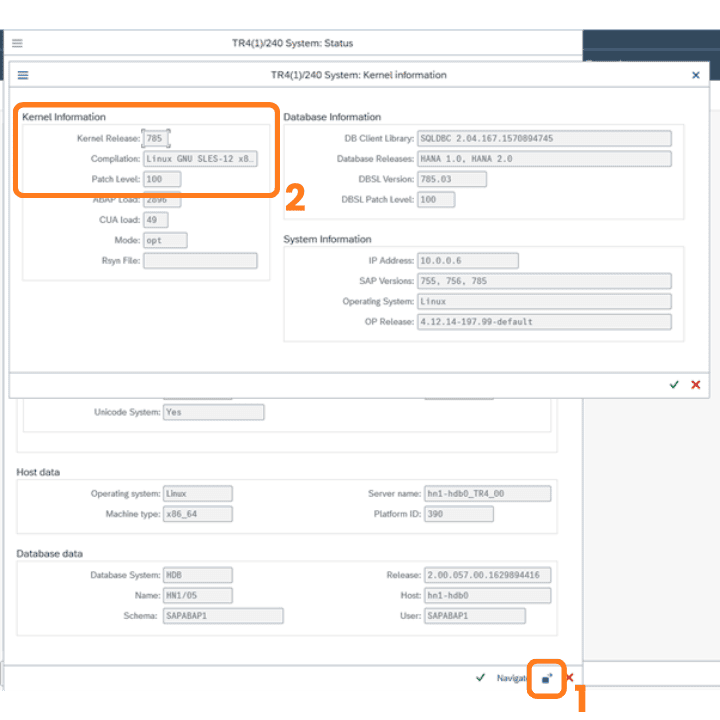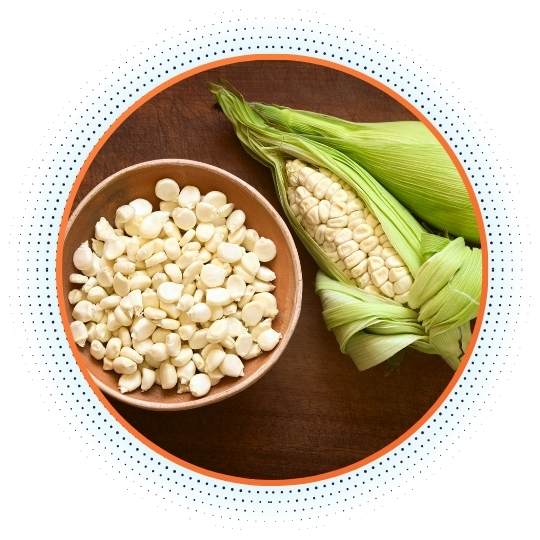Please note: This blog was updated 5th June 2024 with the current information. All content is accurate at the time of publishing but may updated to reflect new information.
The SAP kernel is the core component of any SAP system. It consists of the executable files that run on the server to handle connections to the system and execute the SAP programs. Using the latest stable kernel is vital to ensure your system runs smoothly.
How to Check Your Kernel

Kernel Release Maintenance
Kernel Release | Maintenance Ends… | You Should Upgrade To… |
|---|---|---|
4.6C, 4.6D or lower | None – SAP upgrade required | |
700 | 31st August 2012 | 722 |
720 or 720_EXT | 31st March 2015 | |
721 or 721 EXT | 31st December 2020 | |
722 or 722 EXT | 31st December 2025 | No action needed |
740 | 31st July 2014 | 754 |
741 | 30th June 2015 | |
742 | 31st March 2017 | |
745 | 31st March 2019 | |
749 | 31st December 2022 | |
753 | 31st December 2025 | |
754 | 31st December 2030 |
Choosing a Kernel Release: Downward Compatible Kernels
Your kernel release does not need to match your SAP product release version or NetWeaver release version.
It is important to check your system meets the requirements for the new kernel in the relevant SAP Note:
- SAP Note 1716826 – Usage of the downward compatible kernel 721 (EXT)
- SAP Note 1969546 – Release Roadmap for Kernel 74x and 75x
- SAP Note 2133909 – SAP Kernel 722 (EXT): General Information and Usage
- SAP 3156866 – Using Kernel 7.54 instead of Kernel 7.40, 7.41, 7.42, 7.45, 7.49 or 7.53
Â
You should note that newer kernel releases such as 754 have higher OS and DB requirements than predecessors. If you’re stuck on old releases, you may be forced to use an older kernel. We would always recommend every component of a SAP landscape is supported and receiving maintenance.
Kernal Support Package Levels
To get the value of running a supported kernel release, you must ensure you update regularly to the latest support package of that release. The fixes included in kernel support packages include important stability and security updates, and often the most severe security vulnerabilities are fixed in new kernels.
Absoft releases a public review of SAP security vulnerabilities each month, as we provide bespoke reviews to each of our managed service customers. We help customers decide whether to provide an emergency kernel update to address particular security issues, or if they can safely wait until their next scheduled maintenance.
Kernels in SAP S/4HANA
SAP S/4HANA runs on an SAP kernel in exactly the same way as an SAP ERP 6.0 system. You should update to the latest supported release, then ensure you regularly apply support packages, exactly as in SAP ERP 6.0.
SAP S/4HANA Version | SAP S/4HANA Version Maintenance Ends | Supported Kernel Release | Supported Kernel Release | Release Information Note |
|---|---|---|---|---|
SAP S/4HANA 1610 | 31st December 2021 | 7.53 | 31st December 2025 | 2346431 |
SAP S/4HANA 1709 | 31st December 2022 | 2482453 | ||
SAP S/4HANA 1809 | 31st December 2023 | 7.73 | 31st March 2021 | 2625407 |
7.77 | 31st December 2024 | |||
SAP S/4HANA 1909 | 31st December 2024 | 2769531 | ||
SAP S/4HANA 2020 | 31st December 2025 | 7.81 | 3rd June 2024 | 2884313 |
7.85 | 31st December 2026 | |||
SAP S/4HANA 2021 | 31st December 2026 | 3015539 | ||
SAP S/4HANA 2022 | 31st December 2027 | 7.89 | 31st December 2027 | 3397243 |
SAP S/4HANA 2022 | 31st December 2030 | 7.93 | 3307222 |
Kernels in SAP S/4HANA
All SAP kernels are built on a specific version of the operating system and compiler. When the operating system and compiler for a particular platform reaches the end of support, SAP will make a newer kernel with a newer version of the operating system and compiler called the EXT kernel.
The EXT kernels for a particular release generally have slightly different compatibility, for example SQL Server 2005 is supported on a 722 kernel, but not the 722 EXT kernel. SQL Server 2014 is supported with the 722 EXT kernel, but not 722.
It is recommended to use the newest (ie. EXT or EXT2) kernel that is supported for your platform, as it is more likely to be created on a supported platform with a supported compiler. More information on EXT kernels is available in SAP Note 1553300.
How to Upgrade the Kernel
Kernels are upgraded by simply replacing the executable files on the server with the new versions. The activity is performed by the basis team. Kernels contain no business logic so there is limited risk, but minimal testing is required to ensure the system runs well afterwards.
For our Managed Service customers we include the latest kernel alongside any support packages we apply, meaning the new kernel is also tested as part of the testing for the support package.
To learn more about our team’s experience, tools, and capabilities, please reach out to us now!










